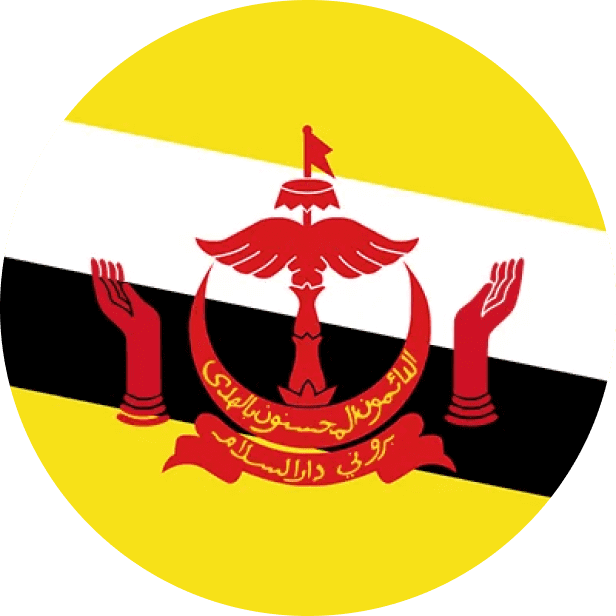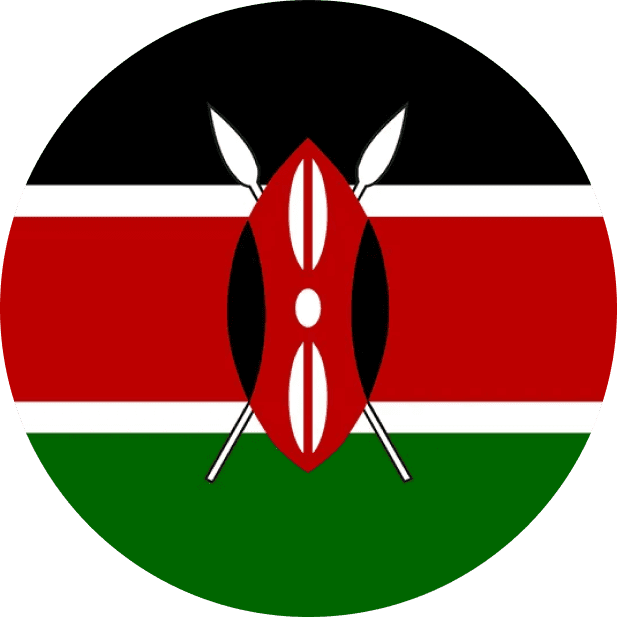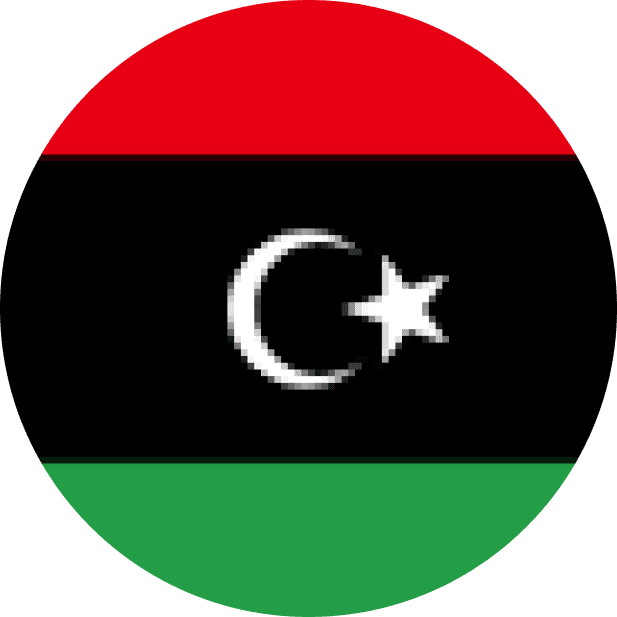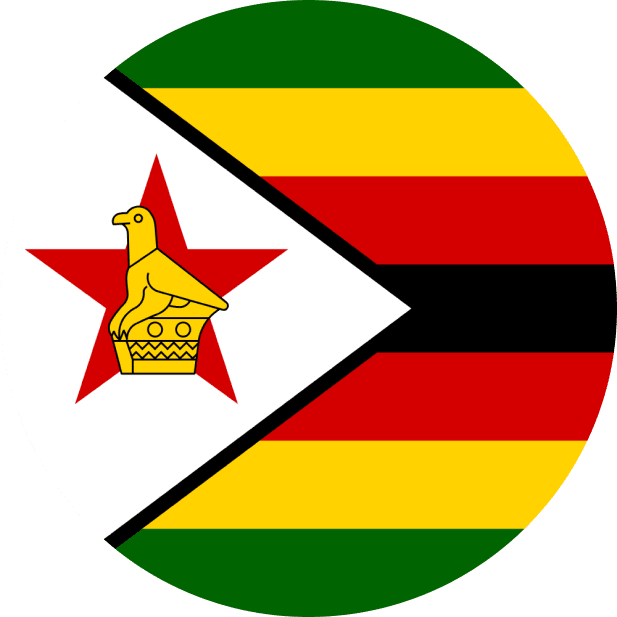About Dion Jensen
![Matching VIPs for improved performance - Dion Jensen [Interview]](https://assets-global.website-files.com/62d84b3d3ba446b2ec041a19/62d84b3d3ba44650040435ca_Screenshot%202020-10-09%20at%206.34.57%20PM.png)
Dion Jensen, is a Professional Speaker, corporate consultant, and corporate trainer. He is known to provide “Human Solutions” for corporates, who are struggling with Crisis Leadership, Mental Health, Engagement, or Productivity. He is a human strategist, and the right person to approach for all things People-Centric. Dion is this decade’s first Goalcast speaker featuring alongside names such as Oprah Winfrey, Denzel Washington, and J.K. Rowling, with his speech ‘Make Peace With The Mirror’ being seen by over 1 Million people. We are happy to have someone of his stature join us on our interview series today.
Sumitha Mariyam
![Matching VIPs for improved performance - Dion Jensen [Interview]](https://assets-global.website-files.com/62d84b3d3ba446b2ec041a19/62d84b3d3ba4462484042458_Screenshot-2020-04-15-at-11.58.56-PM.png)
We have the pleasure of welcoming Dion Jensen today to our interview series. I’m Sumitha Mariyam from the peopleHum team. Before we begin, just a quick intro of PeopleHum. peopleHum is an end-to-end, one-view, integrated human capital management automation platform, the winner of the 2019 global Codie Award for HCM that is specifically built for crafted employee experiences and the future of work.
We run the peopleHum blog and video channel which receives upwards of 200,000 visitors a year and publish around 2 interviews with well-known names globally, every month.
Sumitha
Welcome, Dion we are thrilled to have you.
Dion
Thank you very much. And congratulations on your award.
Sumitha
Thank you. So, moving onto our first question a little bit about yourself.
Can you tell us a little bit about your journey? And, you know, what brought you to being a human strategist?
Dion
Yeah. Absolutely. Look, every situation that we deal with in our life, we’re dealing with people. So everyone likes to try a niche market themselves and give them a brand new name and everything else. But I like dealing with people. So I started in the military. I was born into a military family. And through the military process of training, we learn how to deal with any situation and is always under the environment of fear. So we're comfortable in fear and we’re comfortable in crisis. But what that teaches you is to remove emotion.
So you look at a situation, you remove emotion and you just look at the problem and then you just fix it. Fear ends up being fuel. Any other negative emotion is just fuel. Pain is fuel, fear is fuel, uncertainty is fuel, doubt is fuel, so it all helps. So we remove all the emotion and it's just math. If this is the problem go the other way. If this is a problem and we have to go through it, we go through it. And there's one question that is never asked in the military, “Is this capable of being done?” So for the leaders and managers and corporate trainers and people watching this that are problem solvers, one of the first questions you ask is, “Is this capable of being done?” and if not, let’s look at doing something else.
In the military, you don't have that luxury. ‘From here, your mission is to’. That's it. So from here, your mission is to help people that are terrified of COVID. So we don't think, ‘Can we actually do this?’. We just assume we’re gonna figure out a way to do it. So we get given impossible tasks that we can’t actually do, we're not supposed to be able to do that. But we always do them because we don't know that, that isn’t an impossible task.
So that is the military training right here. But then when I went into the police force, everything is emotional. People are beating each other up, stabbing each other. Car chases, knives, guns, drugs, the whole thing just amplifies emotion. So going from a situation of removing emotions and dealing with the mechanics, to a fully emotional environment where your number one skill is communication.
In the military, your number one skill is a strategy with no emotion, cause fear in the other person, so they stay away from you, we kill them. In the police, you have to communicate with someone and deescalate that using your words, you don't want to use force. And the military use force all the time. That's why it's called the armed forces. In the police, they don't use force.
If you can talk your way out of something, you would rather talk your way out of it. And so the police gave me a different view on all the different types of people and all these different states of emotion, so I could walk into those situations, and the emotion that bothers me, I've dealt with that in the military. I had to learn how to communicate with all these different people from all these different cultures and all these different mindsets. And so I understood that in any situation, especially business, there are 3 areas that you're dealing with. People, processes, or products. That's it.
Businesses are run by the system, systems are run by people. I don't care how advanced AI is. Someone had to program that and if something breaks, someone's gonna have a person who is always involved. And so when I was going from the military to the police, going from fear is fuel to ignoring fear, dealing with emotion, and communicating. After that, I went into close protection bodyguarding and some of the most dangerous places on the planet, where everything is happening at a 100% speed and power.
If you see my crisis leadership series, it's the speed, the stakes, and the scale that dictates how serious the crisis is. How fast is this happening? What is the stake? Is this life worth it or is it just business? And what's the scale? Is this happening in a town? A village? A country? Or the whole world.
So right now with the crises, here at the moment, the speed, it happened fast. We have no control over us. Not for the people who knew it before us. It happened quickly. The stakes are life and death because people are dying and the scale is global, it's a pandemic. So you've got the holy trinity of what constitutes a crisis. So if you're scared right now, you're allowed to be. If you feel out of control and have no idea what you're doing, you are allowed to feel that way.
"So if you're scared right now, you're allowed to be. If you feel out of control and have no idea what you're doing, you are allowed to feel that way."
And while I'm talking about feeling it's gone all the way up that scale. Now, from military to police, to close protection people trying to kill you every day. That was my life for three years. Every day someone is trying to kill you, not hurt you, but kill you. Blow you up or shoot you every day. And under that environment, you operate at too much of a level with too much pressure for too long. And then the cracks start showing.
And so the cracks that started showing to me was my mental health. So I was diagnosed with Post-traumatic stress disorder. And I disagreed with it. I said, "One second, This can't be a disorder. I'm just doing what I'm trained to do. I'm doing the best I know how to do". So I figured out a way to get through that. And I wrote the world's first 'The Good News' book which is about PTSD.
So there's a way out of it, it's actually not a disorder, it's just you're doing the best you know. Let's have a piece of encouragement for today. You're doing the best and you know how to do it. There's no right or wrong in what you're doing. You're just doing your best.
And this is where you bring an expert instead of being involved in this and say, "so, what are you dealing with, What are you thinking?, What are you feeling?, What are you doing?" What I concentrate is on think, feel, do. So the primary emotion that we deal with now is fear. So my journey brought up in fear, brought up in the darkness. Fear is now a friend, it's positive.
Doubt is a friend, it's positive. These things keep me safe. But I have control now through my training. But how did I arrive at being a human strategist? Every factor was caused by, involved with, and reliant upon a person. So if you have people in your organization, I can help because I know how they think, feel, and do things in different situations, that's it.
Sumitha
That's a great answer. And you had a wonderful and eventful journey throughout your life. So I think your ideas on being rational and being emotional at times of need are very important for us to understand, especially at this time of crisis.
Can you tell us a little bit about your approach for raising the value of human capital with the practitioners' approach that you adopt?
Dion
Yeah. Absolutely. Because you just heard a whole military, police, bodyguarding, fear-based, crisis based answer. How the heck do you relate that to corporate, right? So after all of that, I was here, I headhunted to become the regional operations manager for the Asia Pacific. So I ran the whole of Asia Pacific. I was running countries. I was actually born in Singapore. So I was brought up in and around Asian and Indian cultures. And my father is six-foot-six and black and my mother is five-foot-nothing and white. And I came out like this.
You can't see but I am quite tall. I am Six foot four. And so how that ended up in the corporate world is that the corporate world is still dealing with fear. But they're just different fears. So in my practitioners' approach, it was going in there and finding out what the fear was. And the fear is always the loss of engagement, productivity, or revenue.
And the communication style can't be, "Oh, You know, you got to care about your people. And if you look after people, they'll look after your business." They didn't care! This is a business, we have to be profitable, We need the source funnel filled up. I need this many prospects, this many calls, this closure rate, this open rate, this click rate.
Everything was engagement, productivity, and revenue. So I was like, well if I start talking about the people, they're not gonna care. So I started talking about the results because in the military, what is the mission? So I walk in there, I find out what is the fear? Cool. What is the mission?
Cool. Go to point A, go to point B and I just looked at the people and the processes and products. I zoomed in on the people-part. Was this process designed so that the people could do it? Is it the right people that match the process for your products? And I just started with the people-centric focus.
So I had to raise the value of human capital. I had to make people really important, but I couldn't go from an emotional point of view. So, the military, no emotion for the process. Police are full of emotion and lots of processes but more emotional. And then it's corporate. There's no emotion of really loving and caring about your people. There's a huge attachment to money, but those businesses that are really doing well, startups and Google and Amazon, they made people's culture important.
So I knew to stop people from killing themselves, that's where I came from, social support, suicidal soldiers, suicidal rape victims. I was dealing with people of trauma. You know what all these people are at work, all these people in the workplace, the people you're sitting next to are dealing with stuff at home. So I knew the only way I could get into corporate and raise the value of people was not to call them people but call them human capital because it was the language of business. So when we raise the value of human capital, people are happier, they're more engaged, more productive and the company makes more money. If the process and the product are fine.
"So when we raise the value of human capital, people are happier, they're more engaged, more productive and the company makes more money. If the process and the product are fine."
So that was my practitioner approach. I could get there, and I can speak to inspire people and connect with them. That's my main pass, go in like this big lion, and make a lot of noise. "Hey, guys, I'm not scared and know exactly what to do. I've been through this horrible stuff and there's a way through it. And no matter what you think you're on now, I'm not sure exactly what to do because I know your feeling" and that's what I started doing.
Sumitha
Well, that's great. And I just love your positivity and that energy. I'm sure that whoever you’re going to speak is gonna get pumped up and say, Hey, we're going to do this so it feels so good.
And so what do you think that the most effective measures that can be taken by organizations to maintain a good working environment, say, a positive culture that assures good mental health to their employees?
Dion
So I came up with this concept called the VIP of mental health. Value, identity, and purpose. If you can keep those three areas strong, people have strong mental health, right? But the value side of that triangle is critical.
So I'm talking to you Sumitha, What makes you feel the most valuable? What are your core values? How do you communicate with people? What is your currency? What makes you feel the most valuable that you enjoy life the most? Did that at work? So I'm gonna make sure that the best you could do is understand that VIP triangle of every single one of your employees. Understand your VIP triangle of the workplace because the workplace has its own values, has its own identity, has its own purpose.
Every business department has its own value, has its own identity, has its own purpose. So if you can match the VIP triangle of the person to the VIP triangle of the business and put those together and if people are getting all of their value at work, for their identity of being at work and their purpose of doing their job, everything will match.
"So if you can match the VIP triangle of the person to the VIP triangle of the business and put those together and if people are getting all of their value at work, for their identity of being at work and their purpose of doing their job, everything will match."
That's the people's side and then your processes have the right boundaries and this is a really interesting one and accountability.
So they were talking on corporate boarding, right? But I've managed the Asia Pacific. If I say that your KPIs are dipping, we're gonna have a conversation and you got work to do. Performance management is not bullying. All right, so look after the people, understand the business culture, put it together. Understanding what gives your people the most value, understanding what in your business we get the most value in, and matching those is the most important thing that you could do.
And within that structure, it's the manner in which you match core values. The manner in which you communicate. And where the currencies match. It's my advice and it works! Works for me, I mean, if you came to work and you felt the most valuable and happiest when you're at work, that’s when you want to go to work.
Sumitha
Well, I love the concept of matching the VIP of the workplace of yours and just enjoying what you're doing And then, while you're talking about performance management, just a quick question for you.
So what is your opinion on critical performance feedback? So do you think there is something as, "criticism" when you give performance feedback to an employee?
Dion
I see that people do this really terribly badly, you know, it's almost like an interrogation. You feel like you're in trouble. You feel like the school kid going to the principal's office and this question makes no sense to me. Why is this such a big deal is because we're making it a big deal. If you have a relationship with your manager, "Hi Sumitha, we're gonna sit down to make sure that you're happy in your job and because I know if you're happy in your job, we're gonna do this", and that's all. That's having a conversation.
But there's a difference between a conversation and interrogation. I've witnessed it in the police. If I spoke to someone as a police officer, guess what, you'll talk to me. Since I pulled out my notebook and my pen, what do you think happens? They stop talking to me. Because it's gone from a conversation to an interview and then, as you get into the interview, it becomes an interrogation. That's what it feels like. Think, feel, do. So if you think you're in trouble and it feels like an interrogation, are you gonna be honest? No. Is it gonna activate more fear? Yes.
So my advice, it's a conversation and these questions only get asked by people in organizations where there's not a good organizational culture. Because why should you fear going to have a performance appraisal meeting if you're within a good corporate culture?
"Because why should you fear going to have a performance appraisal meeting if you're within a good corporate culture?"
There should be no fear at all. "Hi Dion, It's your turn to help you keep your KPI’s." "No worries boss will be there in five minutes". Walk-in there for coffee. "Hey, boss, how am I doing?" "Yeah, you're doing good, a couple of things you need to work on". "Which ones of those?" "I don't know how to do that, boss" " Sweet. Go and talk to the training manager and wrap this around. You'll be good to go". It's about a relationship. What a good culture!
Sumitha
I think I can see that because you're so energized and I like the energy. Thank you for that. And another question I would like to us with respect to leadership itself.
So do you think there is something as too much recognition? How can you control it, draw that line to not recognize too much so that your employees start underperforming?
Dion
Yeah, okay, that's a good question. Because now we're dealing with and notice the switch. So I'm going to leave them out here. Before alleviating fear and emotion, we had this relation. Now I'm gonna look at, hang on a second, there's gonna be rewards for effort right? So we have that recognition- awards effort, but that has to be planned.
My employees turn up and they do what they're supposed to do, they get paid. I make that a fun and happy environment for people to work in. But if you'll turn it up and you're doing what's expected of you, then great. You should not get a reward for doing your job. Getting paid is your reward for doing your job. Recognition is for when you go over and above, recognition is when someone steps outside of what's comfortable for them.
"You should not get a reward for doing your job. Getting paid is your reward for doing your job. Recognition is for when you go over and above, recognition is when someone steps outside of what's comfortable for them"
And makes that effort for the attainment of the company. That's what you want to reward.
You don't want to reward people for doing their job. They don't expect to get rewarded for doing their job. If we're gonna give you a medal for showing up for work on time, "Congratulations! You’re here at nine o'clock in the morning, here's your $100 bonus." That will make sure that everyone turns up at nine o'clock the next morning, but there's no point.
Sumitha
Oh, that's a beautiful concept. I really like it.
And what advice would you like to give Organizations struggling with employee engagement? I mean, we already went through the process of having an emotional attachment and matching the VIPs. But how can organizations actually implement strategies so that their employees are happy and every morning they jump out of bed saying Hey I want to work, what can organizations do about it?
Dion
All right, here's a really far-out idea. Why don't you ask your employees? Yeah, that sounds simple, right? So I was giving a speech to a big company in Auckland, in New Zealand. And someone asked me that question from the audience.
I turned to the rest of the room and I said, 'Who here has got an idea that would make you feel engaged if you came to work?'. All the hands go up. 'What would you do?' 'I would like a table tennis table.' 'What would you do?' 'It would be nice to have a coffee machine.' 'What would you do?' 'It would be nice to have a big screen because mine is too small.'
That's asking the conversation versus putting out a company survey telling the team asking to fill this out. We've gone from a conversation to an interview to an interrogation. Ask the people that it is going to affect. If you know that your engagement is down, and here's a really important statistic, if you take the percentage of your staff that are disengaged and you multiply that by your yearly payroll. That is your yearly loss in dollars.
"If you take the percentage of your staff that are disengaged and you multiply that by your yearly payroll. That is your yearly loss in dollars."
It's a lot of money. For those watching this thinking, this guy's just all wishy-washy trying to be everyone's best friend. I increased sales by about 30% of my region so I understand this stuff and I understand that if my staff is disengaged I'm losing a fortune. And in Australia, they lose $6 billion a year. A year. Billion with a B. The combination of companies that prioritized productivity over employee well being. Engagement, productivity, revenue. Engagement comes before productivity, you can’t get to productivity if you are not engaged.
Sumitha
Yeah, that makes a lot of sense. And I think it's going to be an absolute eye-opener for a lot of our audience.
What would you say are the most important characteristics that the leader should exhibit besides confidence? What you believe is the new normal in this pandemic, And what is it going to be after? I mean, once the pandemic is over.
Dion
Safety, safety, The leader has to be a safe place to come to, for anything. You should never be afraid of your leaders. So here I'm a confident guy, in the middle of a crisis, I am that rock in the river and I know what to think, I know what to feel, I know what to do. People will follow me in crisis. Once the crisis is finished, if I'm being too strong, if I'm being too confident, people are not gonna feel safe enough to come to me over something less than a crisis. They don't wanna bother me because it's not that important.
"Once the crisis is finished, if I'm being too strong, if I'm being too confident, people are not gonna feel safe enough to come to me over something less than a crisis. They don't wanna bother me because it's not that important."
So afterward I'm gonna do a huge de-briefing. That was scary. That rocked their whole world. Post Traumatic Stress disorder.
So phase 3.5 today. 5 more days of the 1st 80 days of my crisis. Get around your people now. Get around them. You have to be that safe space. I have to manage my kids at home, do the zoom individually, sort of stuff, I am the boss, I am the leader, It's gonna be triply hard for you guys, this uncertainty, this pay, these families, this lockdown.
So now that the main crisis is out of the way, damage control. Come to me with anything. If your grandmother's in a wheelchair, one wheel has fallen off, come to me. Anything that's terrifying, you come to me. Put the AP on standby, get your sights and councils on standby, get ready to do the post side of things. Safety, confidence, and crisis. Safety afterward. We would have to feel safe to come and talk to you.
Sumitha
That's wonderful. And that human approach to things that are great and moving our concentration to another whole area. So we have the millennial workforce rising right now, and it's gaining so much momentum and the gig economy is very prevalent.
So with the rise in the millennial workforce, the gig workers are increasing day by day and they're there for all sorts of jobs. So how do you think this is going to fit in the organizational setup that we have right now And with the current financial crisis coming up. Do you think this is here to stay?
Dion
Yeah, it's an interesting one, and everyone's gonna have an opinion on this. So in crisis leadership, I don't work off an unknown. Because everything's an unknown unless you make it a known. So I'm gonna have to plan for both. So, I'm gonna have a plan if this goes down the toilet and ends up being a recession, they need a billion online products and be self-sufficient to get the bare minimum amount of money to look after your family.
So, write books, get online programs, start building that now. Then I'm also looking for talent now, in the middle of all this crisis. Who's posting? Who stood up on LinkedIn, on all the social media platforms and said, 'I know what to do in this crisis'. Not many. I did! That's why I'm on this interview, right? I'm the guy out there in the big lion tee saying I'm not scared. I know what to do in crisis leadership, that's my thing. Get me in there and I'll help you.
Anyone else is doing something like this, I'm looking to partner with them, or looking to recruit. If you lose your job, you email me. I will find something for you. I know you know how to use zoom and know how to use a computer, got a nice backdrop and you interviewed very well. I can use that one and I will pay for it. So yes, I would be ready for a recession, but I'm also I'm looking for talent now. Why? There's a whole lot of people sitting around on their computers right now. They may be looking for work. A lot of my stuff is digital. I'm always looking for people.
Sumitha
Yeah, that's right. I think we have to make use of this time, stay positive throughout this time, whatever happens, and that has to come from the heart. And I think you need to have that strength. You need to build that strength I would say.
Dion
Yes and No. So right now in crisis, it's too late to build as you're in it. This is resilience, this is an emotion that we can't build when we're in the middle of what's going on. The only way to stop all this from happening is to get something for it to do. So your emotions are doing all this sort of stuff. Get them tasks. Right, so I’m gonna give you three tasks right now.
So what you gonna do is, you're gonna go and update your Linkedin profile. You're gonna connect with me on Linkedin. Why? cause my Linkedin network goes up to over 300,000 people. And so one of the ladies that I spoke to yesterday said, “I'm sitting at home and worried since I can't get work at the moment. I can do this, this and this.” Great, connect with me on Linkedin. Then I search for a CEO where she lived, that does what she does. And I reached out to the CEO and said, "Can you help this lady out?". He said, "Sure, done".
Task number one is updating your LinkedIn profile and connect with me. And then you got access to my entire network. One little thing like that. And then I got a free video on my YouTube channel on how to update your LinkedIn profile so that you can build your network. So all this emotional energy, you can't sit there and talk about it and build it and blah, blah, blah, blah, blah, blah. You need to match that emotional energy with what you do. Think, Feel, Do.
"You need to match that emotional energy with what you do. Think, Feel, Do."
Sumitha
That's wonderful. The way you relate everything with Think, Feel, and Do is amazing. And I really like it.
So, Dion just to wrap up the interview. If you have any important soundbites that you would like to leave our audience?
Dion
100%. The VIP of the mental-health concept is critical. You can go to my website, get the book and the workbook in the back. It's free because if you can grab that, you can look in the mirror, make peace with the mirror first. And as soon as you understand, Think, Feel and Do, you should be listening for these words when you're talking to people.
As soon as they say, "Oh, I don't know about that" - they're thinking something. "Oh, I don't like how this feels" - they're feeling something. "I don't know what to do" - they want something to do. So firstly, get the VIP of mental health. Secondly, the first 10 steps to crisis leadership. That's free - Go and get that. Then reach out, start building it, you've got to do something. What is really, really difficult is, when you're sitting here not knowing what's going on out there and everything is spinning around and you're just getting your whole life planned from this thing. So make peace with the mirror of your mental health, understand crisis leadership, update your LinkedIn profile, connect with me, and go from there.
"So make peace with the mirror of your mental health, understand crisis leadership, update your LinkedIn profile, connect with me, and go from there."
Sumitha
Thank you so much for that. That was wonderful. And I had a very interesting experience talking with you for the past half an hour. It was amazing. And you know this. It's morning in India here, and I have never had such a refreshing start. So this was a very refreshing experience for me. A very enriching experience for me and I am sure our audience is going to learn a lot from this interview because you had all the positivity that we need at this time of crisis. So thank you for that and have a healthy and safe time ahead of you.
Dion
You are very welcome, that's a very important point because if all you're doing is watching all these COVID updates, you’re gonna think the world will doom and gloom. Get in there and watch the motivational videos. I got motivational videos here. I listen to Liz Brown. I listen to Simon Sinek. I listen to Tony Robbins. Start your day with that motivation.
Sumitha
Thank you so much for that.































![Matching VIPs for improved performance - Dion Jensen [Interview]](https://assets-global.website-files.com/62d84b3d3ba446b2ec041a19/62d84b3d3ba44602300435f1_Untitled%20design%20(2)%20(1).png)



.jpg)
![How to stay relevant during a crisis - Rita McGrath [Interview]](https://assets-global.website-files.com/62d84b3d3ba446b2ec041a19/62d84b3d3ba446881d043992_Untitled%20design%20(13).png)
![Transforming adversity into opportunity - Rhett Power [Interview]](https://assets-global.website-files.com/62d84b3d3ba446b2ec041a19/62d84b3d3ba446eee4043850_untitled-design-(4)_optimized.png)












